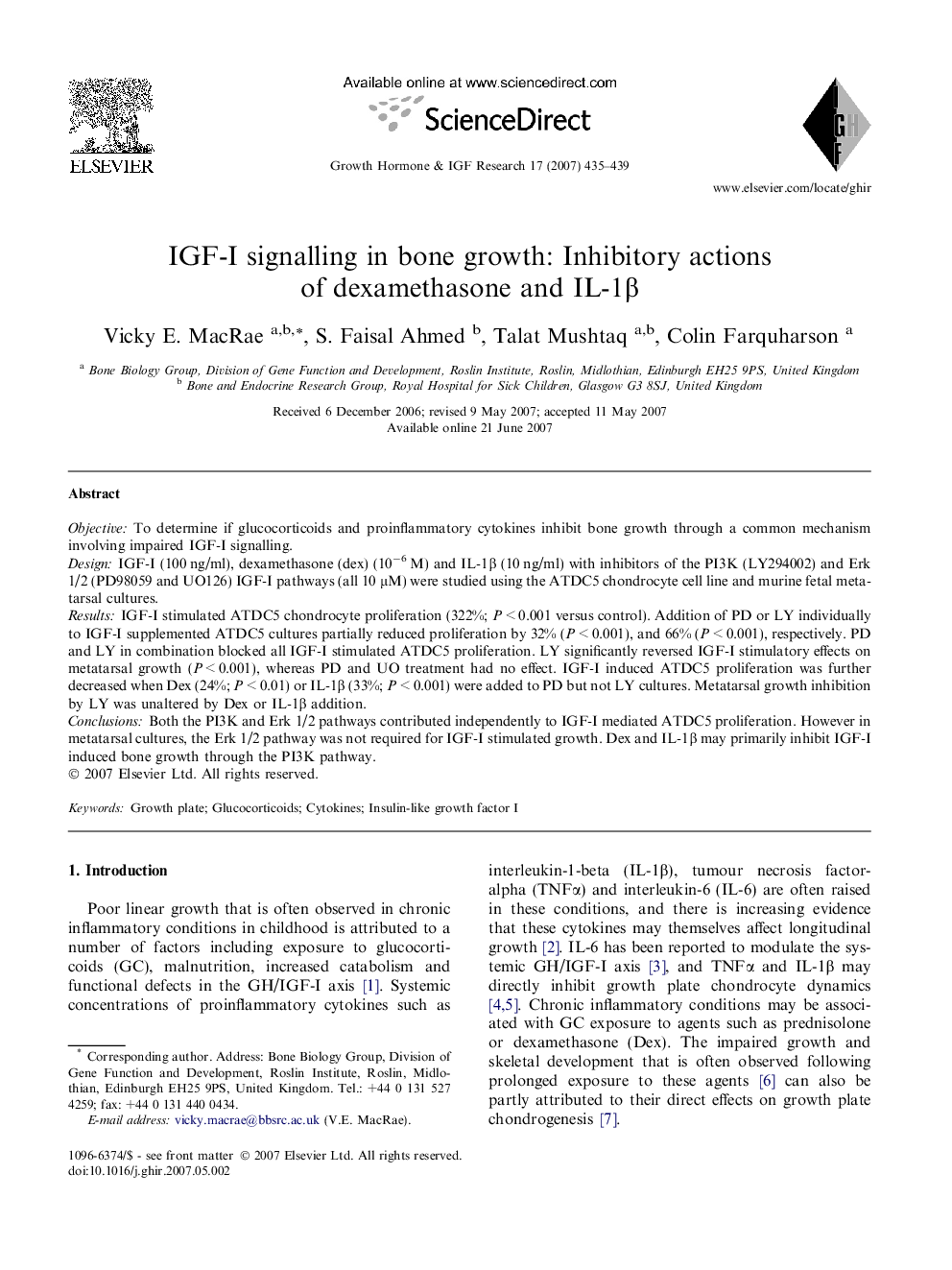| Article ID | Journal | Published Year | Pages | File Type |
|---|---|---|---|---|
| 2803259 | Growth Hormone & IGF Research | 2007 | 5 Pages |
ObjectiveTo determine if glucocorticoids and proinflammatory cytokines inhibit bone growth through a common mechanism involving impaired IGF-I signalling.DesignIGF-I (100 ng/ml), dexamethasone (dex) (10−6 M) and IL-1β (10 ng/ml) with inhibitors of the PI3K (LY294002) and Erk 1/2 (PD98059 and UO126) IGF-I pathways (all 10 μM) were studied using the ATDC5 chondrocyte cell line and murine fetal metatarsal cultures.ResultsIGF-I stimulated ATDC5 chondrocyte proliferation (322%; P < 0.001 versus control). Addition of PD or LY individually to IGF-I supplemented ATDC5 cultures partially reduced proliferation by 32% (P < 0.001), and 66% (P < 0.001), respectively. PD and LY in combination blocked all IGF-I stimulated ATDC5 proliferation. LY significantly reversed IGF-I stimulatory effects on metatarsal growth (P < 0.001), whereas PD and UO treatment had no effect. IGF-I induced ATDC5 proliferation was further decreased when Dex (24%; P < 0.01) or IL-1β (33%; P < 0.001) were added to PD but not LY cultures. Metatarsal growth inhibition by LY was unaltered by Dex or IL-1β addition.ConclusionsBoth the PI3K and Erk 1/2 pathways contributed independently to IGF-I mediated ATDC5 proliferation. However in metatarsal cultures, the Erk 1/2 pathway was not required for IGF-I stimulated growth. Dex and IL-1β may primarily inhibit IGF-I induced bone growth through the PI3K pathway.
